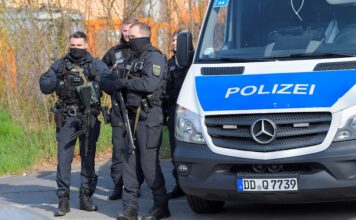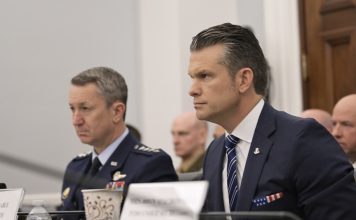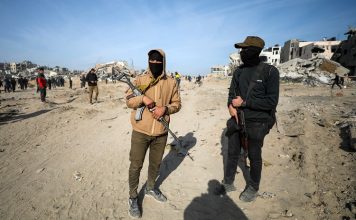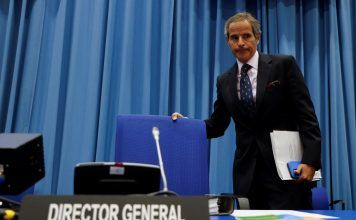By Ahmad Rafat
Several suspicious fires and explosions have occurred at Iranian nuclear facilities, power plants, and weapons depots in recent weeks. The latest explosion was at the Isfahan Power Plant on July 19.
There were reports of an explosion near the Parchin Military Complex, 30 kilometers southeast of Tehran, on June 25. The facility is reportedly used for testing and manufacturing conventional explosives and for nuclear weapons research and development.
On the same day, a fire broke out at the Shiraz Power Plant. Shiraz is the capital of the central province of Fars.
On July 2, an explosion destroyed an industrial shed at the Natanz uranium enrichment facility in Isfahan, which was reportedly the new site for assembling the latest centrifuges.
A fire broke out at another power station in Shiraz the same night.
Two days later, there were fires and explosions at the Zargan Power Plant, in Ahvaz, the Karun Petrochemical Company in Mahshahr, and the Shahid Tondguyan Petrochemical Company in Imam Khomeini Port Special Zone, all in the southwestern province of Khuzestan.
[aesop_image img=”https://kayhanlife.com/wp-content/uploads/2020/07/زرگان-1.jpg” panorama=”off” credit=”Zaragan Power Plant. Kayhan London. ” align=”center” lightbox=”off” captionsrc=”custom” captionposition=”center” revealfx=”off” overlay_revealfx=”off”]
On July 7, an explosion in the city of Garmdarreh, 34 kilometers west of Tehran, cut electricity supply to two districts in Tehran where several military bases are located, including the Islamic Revolutionary Guards Corps’ (IRGC) Aerospace Forces, the Imam Hossein Brigade, and Shahid Modarres weapons depot.
A fire broke out at the Kavian Industrial Estate Company, in the northeastern province of Khorasan Razavi, on July 13.
At least seven vessels were destroyed in a fire at a shipyard in Tangak, in the southern province of Bushehr, on July 15.
[aesop_image img=”https://kayhanlife.com/wp-content/uploads/2020/07/2020-07-15T144020Z_1820164130_RC2QTH9JR8SF_RTRMADP_3_IRAN-FIRE.jpg” panorama=”off” credit=”Smoke rises from ships that are burning at the Iranian port of Bushehr, Iran, July 15, 2020. REUTERS./ ” align=”center” lightbox=”off” captionsrc=”custom” captionposition=”center” revealfx=”off” overlay_revealfx=”off”]
Iranian authorities have confirmed some incidents so far, including the explosion at the Natanz uranium enrichment facility. The construction on the section of the facility that was destroyed in the explosion started in 2013, but stopped after the signing of the Joint Comprehensive Plan of Action (JCPOA), better known as the Iran nuclear deal, in 2015. The section was eventually finished in 2016, two years before the U.S. unilateral withdrawal from the JCPOA. The new section became fully operational recently.
Several members of Majlis’ (Iranian Parliament) National Security and Foreign Policy Committee, including Javad Karimi Ghodoosi, a deputy representing Mashhad electoral district (capital of the Khorasan Razavi Province) traveled to Natanz to assess the damages.
“We have concluded that the incident resulted from a security breach,” Mr. Ghodoosi told the government’s ICANA News Agency on July 22. “There should have been some debris if an object had hit the site, but we have found nothing.”
Ghodoosi did not explain the nature of the security lapse at the Natanz facility.
“The explosion was a professional job carried out with great precision,” a military source inside Iran told Kayhan Life. “Whoever planted the bomb had detailed knowledge of the site similar to the intelligence that the U.S. used in a drone attack that killed [Lieutenant General] Ghasem Soleimani [the former commander of the IRGC’s Qods Force, near Baghdad International Airport on January 8.]”
[aesop_image img=”https://kayhanlife.com/wp-content/uploads/2020/07/2020-07-02T000000Z_1043379290_RC21LH9WFVRF_RTRMADP_3_IRAN-NUCLEAR-NATANZ.jpg” panorama=”off” credit=”A view of a damage building after a fire broke out at Iran’s Natanz Nuclear Facility, in Isfahan, Iran, July 2, 2020. REUTERS./” align=”center” lightbox=”off” captionsrc=”custom” captionposition=”center” revealfx=”off” overlay_revealfx=”off”]
Some people have argued that only Israeli and U.S. intelligence agencies could carry out such complex operations with high precision.
“Whoever was behind this made sure that no one got hurt, and no radiation or chemicals were released into the environment,” the source noted.
According to Kayvan Khosravi, the Spokesman for Iran’s Supreme National Security Council (SNSC), the investigators have determined the cause of the explosion at Natanz, but cannot share their findings with the press and the public because of security concerns.
“Different hypotheses regarding the incident were investigated, which led to the determination of its main cause,” Mr. Khosravi was quoted by the state-run English-language Press TV as saying on July 3. “Because of some security considerations, the cause and manner of this incident will be announced at a proper time.”
“Some people have suggested that Israel was behind the attack,” Khosravi added. “We remain silent on the issue, given that we are not in a position to respond yet.”
“The incident at Natanz has its particular complexities,” Ali Rabiei, the government spokesman, was quoted by the daily Doniya-ye Eghtesad as saying on July 21. “The Atomic Energy Organization of Iran (AEOI) will announce the findings once the exports have concluded their investigations.”
Benny Gantz, Alternate Prime Minister of Israel and Minister of Defense, and Abbas Mousavi, the Spokesman for the Iranian Foreign Ministry, have both implied that Israel could have been involved in the attack on Natanz.
“Everyone can suspect us in everything and all the time, but I don’t think that’s correct,” Mr. Gantz said in an interview with the state radio Kan on July 5. “Not every event that happens in Iran is related to us.”
Israel Says ‘Not Necessarily’ Behind All Iran Nuclear Site Incidents
However, Gantz stopped short of denying that Israel was behind recent bombings and fires in Iran.
“Israel claims responsibility for whatever happens in the world,” Mr. Mousavi said during his weekly press briefing on July 10. “However, it is too early to comment on the genuine cause of the incident.”
Mousavi did not entirely rule out Israel’s involvement in the recent bombings.
In his latest press conference on July 23, Mousavi said: “Several cyberattacks have targeted the country’s infrastructure in recent months. We have identified the states which have sponsored and directed these attacks.”
To acknowledge that Israel has been behind these attacks is to confirm that its spy agencies have infiltrated Iran’s Ministry of Intelligence and the Intelligence Organization of the IRGC. It would amount to Tehran admitting massive intelligence and security failure.
The Islamic Republic regime has to commit a terrorist act or launch a military attack against Israel to save face and maintain its hollow authority; otherwise, Tehran must accept its military failure. Repeating empty threats is one of the regime’s oldest policies. For the past two years, the Israeli Air Force has been pounding the military bases of the IRGC and Shia militia groups under its command in Syria. The Iranian military has yet to respond to these attacks.
Syria Says Israel Strikes Southern Damascus; Sources Say Iranian Bases Hit
Although the Israeli sources who have spoken to Kayhan Life deny any Israeli involvement in the explosions, they understand the overwhelming support for the forces that aim to overthrow the Iranian regime. These sources believe that the attacks were carried out by an organized underground group comprising members of the military and security forces whose sole aim is to change the Iranian regime.
According to the same sources, the underground group sees popular uprising and widespread protests as ineffective methods because they come at a high cost and have little chance of success. They also argue that traditional armed groups are relics from the Cold War and could easily be defeated by the regime’s military security forces and the militias controlled by the IRGC.
The same Israeli sources believe that the Islamic Republic cannot and will not react to the bombings given they have not and most likely will not cause the loss of any lives, which ultimately the Iranian public will interpret as a sign that the regime is weakening. They argue that civil unrest could deliver the final blow to the regime under these circumstances.
Do these explosions signal an all-out war between Israel and Iran? This is a tough question to answer. In recent days, Israel has asked Washington to fast-track the delivery of the aerial refueling aircraft it had purchased a while back. Israel has also bought several Pegasus KC-46, a military aerial refueling, and strategic military transport aircraft from Boeing. Israel will also take delivery of 990 million liters of fuel used in the U.S. fighter jets.
Speaking at a ceremony to honor Israeli soldiers on July 8, Prime Minister Benjamin Netanyahu said: “We face three major security issues today, namely Iran’s nuclear weapons program, the IRGC’s continued presence on the Israel-Syria border, and IRGC supplying Lebanese Hezbollah with guided missiles.”
Israel’s Chief of General Staff, Aviv Kochavi, who was at the ceremony, said: “We are ready to face these challenges.”
“A series of violent attacks, involving explosions and fires, have been hitting Iran. The incidents have been too frequent and intense to be random accidents. They are part of an organized effort,” the American financial and business news website Business Insider, said on July 22. “Neither the Israeli government nor the Trump administration has formally declared war against Iran, but the rhetoric of each has stopped only slightly short of such a declaration.”
“Netanyahu also, like the Iranians, is aware of the U.S. electoral calendar and American opinion polls,” Business Insider added. “He may see the next few months as an optimal and limited time for stirring the regional pot even more than Israel has in the past, while his friend Donald Trump is still in power. To the extent the stirring helps his friend’s re-election chances, so much the better from his point of view.”
Writing on Bloomberg News on July 13, Eli Jon Lake, an American columnist, said: “Whoever wins the U.S. presidency in November will try to negotiate a stronger nuclear deal with Iran in 2021. But events of the last few weeks show that there are better ways to frustrate the regime’s nuclear ambitions.”
This article was translated and adapted from Persian by Fardine Hamidi.








